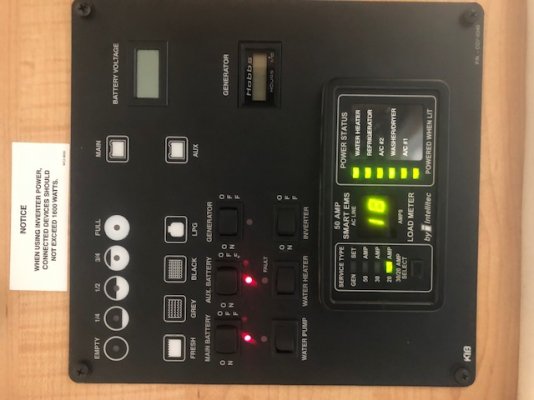thelazyl
Well-known member
Hi All,
My motorhome's house power was completely out this morning because I left a light on from last trip (I didn't plug into a home extension cord as normal - I got lazy). Upon investigating it I notice that the Aux Battery switch was off (I think some people call this a "salesman switch"). I assume this is standard functionality to protect appliances? Is it the inverter/charger that trips this? I rarely turn this switch off so I assume it switched to off automatically.
Also, I plugged into my home using an extension cord. All looked normal for some time. When I looked again I noticed the RV's power was out (by looking at the control monitor). I had tripped my house's circuit breaker. I had the furnace running at the time. For those of you who connect at home using an extension cord - what amperage of a circuit breaker do you normally use? I believe my home's breaker is 20amp.
2003 Fleetwood Bounder 37U DP
I am still newbie-ish when it comes to RV's and I am a novice with electrical stuff.
Thanks in advance and thanks for this forum!
My motorhome's house power was completely out this morning because I left a light on from last trip (I didn't plug into a home extension cord as normal - I got lazy). Upon investigating it I notice that the Aux Battery switch was off (I think some people call this a "salesman switch"). I assume this is standard functionality to protect appliances? Is it the inverter/charger that trips this? I rarely turn this switch off so I assume it switched to off automatically.
Also, I plugged into my home using an extension cord. All looked normal for some time. When I looked again I noticed the RV's power was out (by looking at the control monitor). I had tripped my house's circuit breaker. I had the furnace running at the time. For those of you who connect at home using an extension cord - what amperage of a circuit breaker do you normally use? I believe my home's breaker is 20amp.
2003 Fleetwood Bounder 37U DP
I am still newbie-ish when it comes to RV's and I am a novice with electrical stuff.
Thanks in advance and thanks for this forum!

